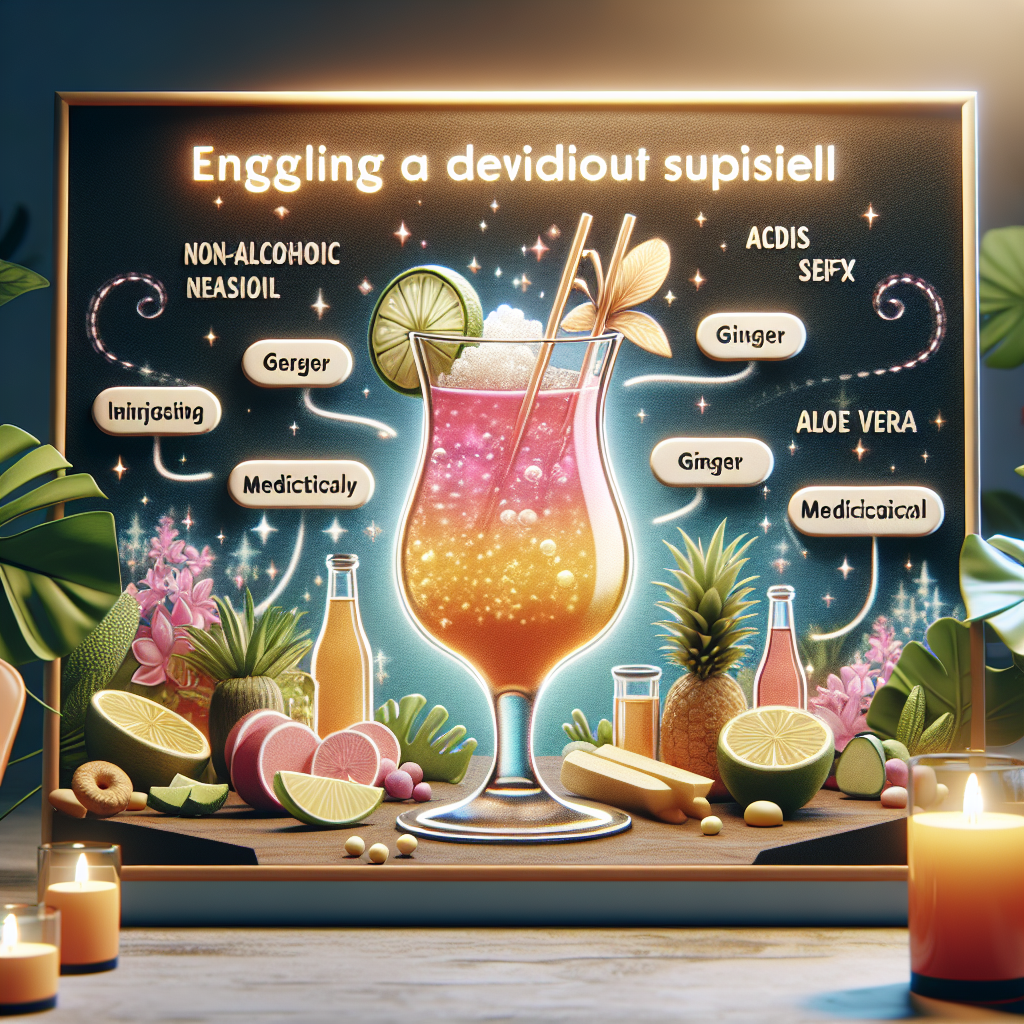Are you someone who loves to enjoy a refreshing alcoholic beverage but often finds yourself hesitating due to concerns about acid reflux? If so, you’re not alone! Acid reflux can be a major obstacle for those who want to indulge in their favorite libations without experiencing discomfort. In this article, we will explore some valuable tips and tricks to help you navigate the world of alcoholic drinks while managing your acid reflux effectively. So, grab a drink and join us on this journey to sipping safely!

This image is property of pixabay.com.
Understanding Acid Reflux
Acid reflux, also known as gastroesophageal reflux disease (GERD), is a common digestive disorder that occurs when stomach acid flows back into the esophagus. This can cause a burning sensation in the chest, known as heartburn, along with other uncomfortable symptoms. Understanding the causes, symptoms, and management strategies for acid reflux is essential for maintaining a healthy lifestyle.
What is Acid Reflux?
Acid reflux occurs when the lower esophageal sphincter (LES), a muscle that acts as a valve between the stomach and esophagus, doesn’t close properly. This allows stomach acid to flow back into the esophagus, leading to irritation and discomfort. While occasional acid reflux is common and typically harmless, chronic acid reflux can lead to more severe complications over time.
Causes of Acid Reflux
Several factors can contribute to the development of acid reflux. These may include lifestyle choices such as consuming certain foods and beverages, as well as underlying medical conditions. Some common causes of acid reflux include:
- Diet: Consuming high-fat, spicy, or acidic foods can trigger acid reflux symptoms.
- Obesity: Excess weight can put pressure on the abdomen, leading to acid reflux.
- Smoking: Tobacco use can weaken the LES and increase the risk of acid reflux.
- Pregnancy: Hormonal changes during pregnancy can relax the LES, leading to acid reflux.
- Hiatal Hernia: A condition where the upper part of the stomach protrudes into the chest cavity, causing acid reflux.
Symptoms of Acid Reflux
The symptoms of acid reflux can vary from person to person, but common signs include:
- Heartburn: A burning sensation in the chest that may radiate to the throat.
- Regurgitation: Sour or bitter taste in the mouth due to the backflow of stomach acid.
- Dyspepsia: Indigestion, bloating, or discomfort in the upper abdomen.
- Dysphagia: Difficulty swallowing or a sensation of food getting stuck in the throat.
- Chronic Cough: Persistent cough that is often worse at night and may be related to post-nasal drip caused by acid reflux.
Impact of Alcohol on Acid Reflux
For individuals with acid reflux, alcohol can exacerbate symptoms and increase the risk of complications. It is essential to understand how alcohol can cause acid reflux and the potential worsening of symptoms.
How Does Alcohol Cause Acid Reflux?
Alcohol consumption can relax the LES, allowing stomach acid to flow back into the esophagus. Additionally, alcohol can stimulate the production of stomach acid, further aggravating acid reflux. The type and amount of alcohol consumed can also affect its impact on acid reflux.
Worsening of Symptoms
Alcohol can worsen the symptoms of acid reflux, leading to increased discomfort. The combination of alcohol’s effects on the LES and stomach acid production can result in more frequent and severe episodes of heartburn, regurgitation, and other related symptoms.
Increased Risk of Complications
Regular alcohol consumption can contribute to the development of more severe complications associated with acid reflux. These can include the formation of esophageal ulcers, esophagitis (inflammation of the esophagus), and even an increased risk of developing esophageal cancer.
Choosing the Right Alcoholic Drinks
While alcohol can pose challenges for individuals with acid reflux, making informed choices about the type of alcoholic beverages consumed can help minimize potential symptoms.
Alcohol Content
Opting for alcoholic beverages with lower alcohol content can be beneficial for those with acid reflux. High-proof spirits and drinks with higher alcohol concentrations can increase the risk of symptoms, so choosing lower-alcohol alternatives can help reduce the likelihood of acid reflux episodes.
Lower Acid Options
Certain alcoholic drinks may be less likely to trigger acid reflux symptoms. For example, vodka and gin have lower acidity levels compared to drinks like tequila or whiskey. Additionally, lighter beers or white wines may be better tolerated by individuals with acid reflux compared to darker or more acidic options.
Mixers and Garnishes to Avoid
It’s not only the alcohol itself that can contribute to acid reflux. Mixers and garnishes often used in cocktails can also worsen symptoms. Carbonated beverages, citrus juices, and tomato-based mixers should be avoided or consumed in moderation, as they can increase acidity and trigger acid reflux.
Limiting Alcohol Intake
While it may be challenging for some individuals, moderation is key when it comes to managing acid reflux while still enjoying alcoholic beverages. Implementing strategies to limit alcohol intake can help minimize symptoms and potential complications.
Moderation is Key
Limiting the amount of alcohol consumed is crucial for individuals with acid reflux. Moderation guidelines recommend up to one drink per day for women and up to two drinks per day for men. It’s important to note that exceeding these limits can significantly increase the risk of developing or exacerbating acid reflux symptoms.
Identifying Triggers
Every individual may have specific triggers that exacerbate their acid reflux symptoms. Taking note of which alcoholic drinks or specific ingredients worsen symptoms can help identify personal triggers. By avoiding these triggers, individuals can reduce the likelihood of experiencing acid reflux episodes.
Alternatives to Alcoholic Drinks
Sometimes, avoiding alcohol altogether may be the best option for individuals with severe acid reflux or those experiencing frequent symptoms. Choosing non-alcoholic alternatives, such as mocktails or alcohol-free beer, can provide a similar social experience without the risk of triggering acid reflux symptoms.

Tips for Drinking Alcoholic Beverages
Implementing certain strategies while consuming alcoholic drinks can help minimize the impact on acid reflux and reduce the risk of symptoms.
Slow and Steady
Sipping alcoholic beverages slowly rather than consuming them quickly can help lessen the impact on acid reflux symptoms. Pace yourself and take small sips, allowing your body time to process the alcohol and reducing the likelihood of triggering acid reflux.
Avoid Binging
Excessive drinking and binging can significantly increase the risk of acid reflux symptoms. It’s important to remember that moderation is key and that consuming large amounts of alcohol in a short period can overwhelm the body’s ability to process it, leading to more severe symptoms.
Stay Hydrated
Drinking alcoholic beverages can contribute to dehydration, which can worsen acid reflux symptoms. Remember to drink water or non-acidic fluids alongside alcoholic drinks to stay hydrated. This can help dilute stomach acid and provide relief from potential heartburn or discomfort.
Preventing Acid Reflux While Drinking
In addition to mindful drinking habits, implementing certain preventive measures can further reduce the risk of acid reflux symptoms while enjoying alcoholic beverages.
Eat Before Drinking
Consuming a meal or snack before drinking can help minimize the impact of alcohol on the stomach. Having food in your stomach helps dilute the effects of alcohol and provides a buffer, reducing the likelihood of acid reflux symptoms.
Stay Upright
Maintaining an upright posture while drinking can help prevent stomach acid from flowing back into the esophagus. Avoid lying down immediately after consuming alcoholic beverages, as this can increase the risk of acid reflux. Sitting or standing upright allows gravity to aid digestion and can minimize symptoms.
Avoid Other Triggers
Individuals with acid reflux often have other triggers beyond alcohol. These can include spicy foods, caffeine, and certain medications. It’s important to be aware of these triggers and avoid them while consuming alcoholic beverages to minimize the risk of acid reflux symptoms.

Managing Acid Reflux Symptoms
Acid reflux symptoms can be managed through various approaches, including over-the-counter medications, natural remedies, and seeking medical help when necessary.
Over-the-Counter Medications
Antacids, such as calcium carbonate or aluminum hydroxide, can help neutralize stomach acid and provide temporary relief from acid reflux symptoms. Proton pump inhibitors (PPIs) can also be effective in reducing stomach acid production and alleviating symptoms. However, it’s essential to consult with a healthcare professional before starting any medication.
Natural Remedies
Several natural remedies can help relieve acid reflux symptoms. These may include consuming ginger or chamomile tea, chewing gum to stimulate saliva production and neutralize stomach acid, and avoiding tight-fitting clothing that can put pressure on the abdomen. It’s important to note that while natural remedies may provide relief for some, they may not work for everyone, and personalized recommendations should be sought.
When to Seek Medical Help
If acid reflux symptoms persist, worsen, or interfere with daily life despite making lifestyle modifications and using over-the-counter remedies, it is important to seek medical help. A healthcare provider can evaluate the severity of symptoms, conduct necessary tests, and provide personalized recommendations or prescribe stronger medications to manage acid reflux effectively.
Lifestyle Modifications for Acid Reflux
In addition to managing alcohol intake, making certain lifestyle modifications can have a significant impact on reducing acid reflux symptoms.
Dietary Changes
Avoiding trigger foods and making dietary modifications can help prevent acid reflux episodes. Some recommendations include reducing the consumption of high-fat foods, spicy foods, citrus fruits, and chocolate. Additionally, maintaining a healthy weight and eating smaller, more frequent meals can help minimize symptoms.
Weight Management
Excess weight can put pressure on the abdomen and increase the risk of acid reflux. Engaging in regular physical activity, adopting a balanced diet, and maintaining a healthy weight can significantly reduce symptoms and improve overall digestive health.
Avoiding Triggers
Individuals with acid reflux should identify and avoid personal triggers that worsen symptoms. This may involve keeping a food diary and tracking symptoms to pinpoint specific foods or activities that trigger acid reflux. By avoiding these triggers, individuals can experience significant relief from symptoms.
Understanding Your Limits
Each individual has a different tolerance for alcohol and different triggers for acid reflux. Understanding personal limits and knowing when to stop or avoid alcohol can play a crucial role in managing acid reflux effectively.
Individual Tolerance
Alcohol tolerance varies from person to person. Some individuals may be more susceptible to alcohol-related acid reflux, while others may tolerate certain types of alcoholic beverages better. Paying attention to personal tolerance levels can help avoid uncomfortable symptoms.
Knowing When to Stop
If you begin to experience symptoms of acid reflux, it’s important to recognize when it’s time to stop drinking alcohol. Persisting with consumption despite increasing discomfort can lead to more severe symptoms and potential complications in the long run. Listening to your body and recognizing the signs to stop drinking is vital for managing acid reflux effectively.
Listening to Your Body
Everyone’s body reacts differently to alcohol and triggers for acid reflux. Paying close attention to how your body responds to different drinks, food combinations, and other factors can help identify what works best for you. Listen to your body’s signals and make appropriate choices to prevent acid reflux symptoms.
Seeking Professional Guidance
While the tips and strategies mentioned above can help manage acid reflux symptoms, consulting a healthcare provider is essential for personalized guidance and proper diagnosis.
Consulting a Healthcare Provider
If you experience frequent or severe acid reflux symptoms, it is important to consult a healthcare provider for a comprehensive evaluation. They can assess the severity of the condition, help identify specific triggers, and provide personalized advice on managing acid reflux while still enjoying alcoholic beverages responsibly.
Getting Proper Diagnosis
In some cases, acid reflux may be a symptom of an underlying condition that requires further investigation. A healthcare provider can perform tests such as an endoscopy, pH monitoring, or esophageal manometry to accurately diagnose the cause of acid reflux and determine the appropriate treatment plan.
Personalized Recommendations
Each individual’s situation is unique, and personalized recommendations from a healthcare provider can make a significant difference in managing acid reflux. They can offer specific strategies, suggest appropriate medications, and provide ongoing support to help individuals navigate their acid reflux journey effectively.
In conclusion, understanding the impact of alcohol on acid reflux and implementing strategies to manage symptoms is crucial for individuals who enjoy alcoholic beverages. By choosing the right drinks, limiting alcohol intake, and making certain lifestyle modifications, individuals can strike a balance between socializing and maintaining their digestive health. It is important to listen to your body, know your limits, and seek professional guidance for personalized recommendations to effectively manage acid reflux while still enjoying the occasional alcoholic beverage.
